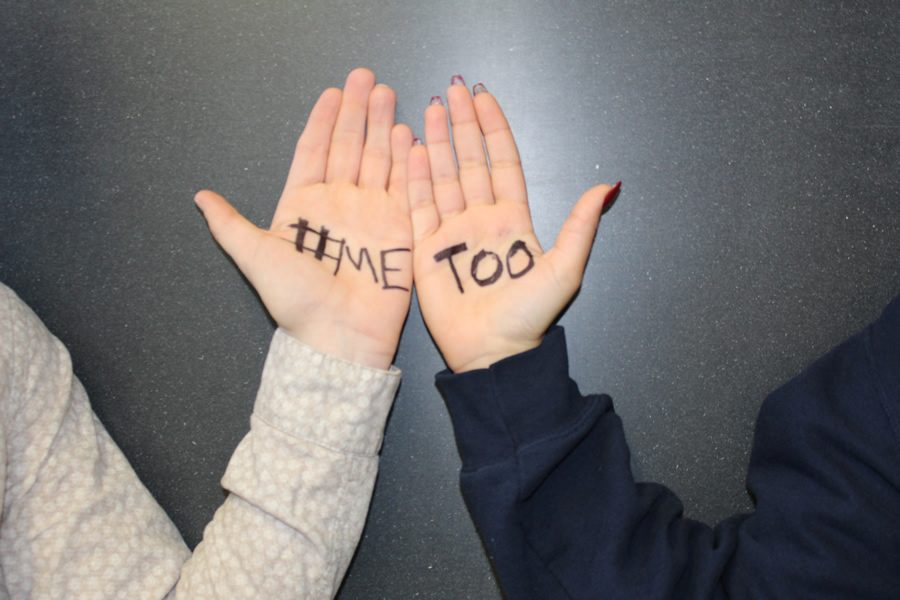On October 5th of this year, the New York Times published a groundbreaking article. Reporters Jodi Kantor and Megan Twohey powerfully recounted the stories of eight different women claiming to have been sexually harassed by film mogul Harvey Weinstein. In just a few weeks time, 83 women in total would come forward with their own sexual harassment accusations against the famous movie-maker. The powerful executive’s career was over-and a cultural zeitgeist had begun.
As a result, the Weinstein accusers have inspired an innumerable amount of women to come forward with allegations against powerful men in all sects of society. Actor Kevin Spacey, Senator Al Franken, and journalists Charlie Rose and Matt Lauer are just some of the names of influential men who have been plagued with accusations of sexual misconduct. Almost daily, cable news reminds the public of the President’s “locker room talk.” Currently, the topics of sexual assault and harassment are simply unavoidable.
Understandably, it can be hard to adjust to this new social era. What’s even tougher is grappling with a sad truth the #MeToo movement has uncovered: in our society, most women have and will encounter sexual harassment in their lifetimes. While it is difficult to condemn the accused – for they can be found in members of our own family and friends – it is greatly necessary. That is not enough, however. What truly must occur in order for the social acceptance of victimization to end is a cultural re-awakening. What this primarily includes is men’s participation in the movement. Without the help of half of the population of our workforce, sexual harassment will continue to go unaddressed.
In addition, these are just some simple things men can do to help stop this continuing problem:
Do not engage in offensive sexual behavior.
-Under no circumstances is inappropriate touching okay!
-Sexually offensive jokes are not funny; they are hurtful.
-You do not have the right to make women uncomfortable by whistling, honking, jeering, or overtly staring!
-Do not partake in conversations with your buddies which demean women. “Locker room talk,” should not consist of degrading wisecracks and derogatory statements.
Respect and include women in the workplace and at school.
-Unfortunately, men statistically hold most leadership positions in schools and the workplace. Rather, support those women who pursue a higher status. Respect those who have. Therefore, sexual misconduct can and will be stopped when women are entirely equal to men in corporate standing.
-Always speak to female coworkers and schoolmates exactly as you would speak to male coworkers and schoolmates.
– Remember, personal opinion on one’s physical appearance should never play a role in the how one treats a person!
Denounce all harassment you witness.
–Reprimand male friends for partaking in undignified banter regarding females.
-Most of all, stand up for any women victimized by a male colleague or peer. Report incidents to authority immediately.
Believe and Support Accusers
-Consequently, do not doubt or discredit the brave women coming forward with personal stories of sexual harassment.
-Especially relevant, never victim blame! Statements like “This wouldn’t have happened if she didn’t wear revealing clothing!” or “She had it coming!” are WRONG! A sexual assault sufferer’s appearance or attire did not cause their victimization. These statements only excuse and justify bad behavior!
Furthermore, institutions themselves must change their policies to better punish those who commit abuse and prevent it from happening in the first place. The issue is much larger than just reprimanding men for bad actions. Appropriately, cultural change must first occur where women oftentimes experience harassment for the first time- school. According to the American Association of University Women, 48 percent of high school students claimed to be sexually harassed during the course of one school year. Many believe that schools do not go far enough in disciplining these cases.
File Code 4111.1/4211.1 of the policy handbook for Woodbridge Township Public Schools contains the district’s policy on sexual harassment. Specifically, it reads, “Sexual harassment of staff or children interferes with the learning process and will not be tolerated in the Woodbridge Township schools. Harassment by board members, employees, parents, students, vendors and others doing business with the district is prohibited.”
However, the more accessible Student Handbook contains no mention of this policy. Vice Principal Murphy when questioned on why the statute is not listed alongside the other student regulations answered, “This is something of importance that should be more accessible to students.” She agreed that by placing the policy in a more reachable location, the school could send a message about the seriousness of it’s position. Due to renewed public interest, Murphy has decided to add the policy on sexual harassment to the student handbook next year.
All in all, Colonia High School itself has been fairly efficient in responding to and preventing such allegations. Ann Dinicola, a guidance counselor and Affirmative Action Officer at Colonia prides herself on the school’s handling of these matters. She credits the New Jersey Anti-Bullying Bill of Rights Act of 2010 as a turning point for the state’s consciousness of sexual assault in schools. N.J. S.A. 18A.37-14 legally considers sexual harassment to be gender discrimination. Simultaneously, this progressive law – the strictest of its kind – also sets standards for how administrators should handle various types of bullying and harassment incidents.
Across the nation, the same directives are not enforced, however. On many college campuses and in many high schools, rape is sadly considered to be an unavoidable rite of passage. A startling expose published in The Atlantic, penned just months ago, revealed that many universities have a long history of disregarding and disbelieving female student accusers. Most noteworthy, this September the Trump Administration rescinded an Obama-era policy which allowed for more aggressive handling of campus sexual assault allegations.
Hence, all this proves that the fight to end gender discrimination and sexual harassment is far from over. It is great that a multitude of women have come forward with empowering personal stories about surviving assault. Nonetheless, their words hold no power if they fall on deaf ears. It is time to take action…
Secondary schools and universities – ours included – should consider more prominently displaying policies against sexual assault. Teachers and students should create an open dialogue about which classroom behavior is appropriate and which is not. Organizations should strengthen sanctions against sexual abusers. Any efforts to undermine this, from the White House, or otherwise, should be met with public outcry.
The reason why the #MeToo campaign has gained such unprecedented momentum in the past few months – even being named Time’s Person of the Year – is simple. Almost everyone has a painful, personal experience with being mistreated in the workplace. Because of thousands sharing their stories, the “good ol’ days” of office patriarchy found in reruns of Mad Men are over. As a result, we all must analyze and adjust our behavior. The silver lining in a movement is that now the doors have opened for real change to occur. Men and women, teens and adults, universities and corporations must now address this issue practically and honestly. Then, and only then, will societal change transpire.










